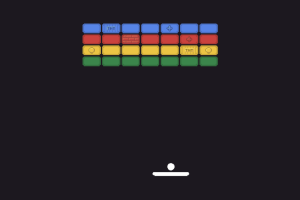The CSE mains exam is one of the major barriers that candidates seek to clear to join the Indian civil services. When aspiring professionals get ready for this highly challenging test, there is one important aspect which the candidates are to address, and that is how to identify directives in questions and respond appropriately.
The primary reason why directives have to be provided is that they define not only the general tone and aggressiveness of the response one has to give but also the level of detail that is necessary for devising that response.
The article discusses types of encountered in CSE mains exam, their role, and practical recommendations for such an endeavor alongside providing explanations in an easily comprehensible manner while employing such writing features as perplexity and burstiness.
What Are Directives?
Imperatives are the message cues that are incorporated into examination questions and point out to the candidates how to structure their answers. They are essential for the simple reasons that the reaction, the overall form, and the content of the actual answer stem from them; therefore, they define the framework of the candidates’ perception of the questions. Comprehending these directives will make a difference between an average response or simply an average score and a great response deserving of the highest grade.
Common Directives in CSE Mains Exam
The CSE Mains exam uses many directives, every one of which has its unique implementation stage. Here are some of the most frequently encountered directives, along with their meanings and implications:
Discuss
It can therefore be said that, when a question instructs a student to “discuss,” the examiner is demanding an equal treatment of the subject in question. Whilst composing your assignment, you must outline diverse views, carry out an appraisal of sources of information, and notably analyze the content of the course. For instance, if the directive is to ‘Talk about the effects of climate change’ then you should be able to see the social, economic as well as the environmental consequences.
Analyze
Candidates undertaking “Analyze” directives should disassemble a topic into elements. This means learning to look at the elements analytically and arguing about the connections between them, stressful consequences. When given a policy, divide it into its objectives, implementation strategies, and results then give a complex picture of the policy.
Evaluate
The “evaluate” directive requires the writer to make a decision on the merits or demerits of an idea, argument, or a policy. You have to critique given information, consider pros and cons, make the final decision that can be logically justified. For example, in measuring the performance of a particular government scheme, one will consider the set goals and objectives, achievement, short comings and the likelihood of improvement.
Compare and Contrast
This directive involves categorizing and differentiating two or more entities, your research. When answering this question, it’s important to arrange your answer in a logical manner and probably use a tabular form. For instance, if invited to write about the similarities and the differences between two economic policies, describe features, results, and the theoretical underpinnings of the two policies simultaneously.
Critically Examine
A critical examination means that you are going to be asked to work a little harder and look at a subject in a different way. This means coming not only to define the subject, but to ask questions about the premises and conclusions of the subject. In case this topic is being presented as more specifically, for instance, critically analyze the phenomenon of globalization, to assess the advantages and the disadvantages of this process, with focus on socio-political background.
Illustrate
This tells the candidates when they are required to “illustrate,” they should give examples or cases to explain what they are explaining. This can involve the use of real-life scenario to illustrate a theory or principle for instance. For example, when describing a social problem, indicate examples or numerators of the type of problem depicted.
Explain
According to the explained “explain” directive, we are supposed to elucidate. Candidates should explain about a concept, theory or process in their own elaboration. This usually demands the identification of definition of variables and justification on a logical basis. For instance, if you are to write on sustainable development, you should be able to dissect every part of this concept while relating that to the present world.
Why Understanding Directives Matters
Understanding directives is pivotal for several reasons:
- Clarity of Thought: One of the benefits of understanding what a question requires is that you are easily able to arrange your ideas systematically. It enables one to devote attention to the correct features of that subject.
- Targeted Responses: All of them must be addressed differently. Lack of amity with these can result in making poor responses that do not answer the question well enough.
- Maximized Scores: Accurate understanding of directions offered and subsequent appropriate approaches toward solving them can greatly improve probability of getting better results. Each exam expects a certain depth of analysis, evaluative skills, and format of the answer given.
Tips for Responding to Directives
1. Read the Question Carefully
The first phase in answering any question is always to read it thoroughly. This is important as the way you respond is dictated by the way the person directing you carries himself or herself. Always try to underline or make a tick on items that have been asked to make sure you are clear about what is expected from you. That is why the given practice can be rather helpful in avoiding various misinterpretations and misunderstandings.
2. Plan Your Answer
After receiving an understanding of the directive, be sure to pen down your response. So planning is good in that it assists you in structuring your ideas and to make sure you do not miss out on some issues. Depending on the directive, consider the following:
- When used to discuss or in evaluate, it is expected that you list all the different points or aspects to be discussed.
- For analyze, write down the key factors you are planning to focus.
- When writing compare and contrast, it is effective to create a chart in order to organize your ideas.
The organization improves consistency and writing flow, which is important for producing good papers.
3. Use Relevant Examples and Evidence
Unfortunately, using examples is one of the most effective ways of enhancing your answers. Therefore, examples back up your opinions, and the information makes your standpoint easier to understand. Ensure that your examples are pertinent to the directive:
- For illustration, use examples which literally explain your point or argument.
- In a critical examination, you should use cases that present different perspectives or results.
In that case, reference data or statistics whenever you can, so as to back up your points. This goes a long way in building credibility among other things, it also demonstrates to the examiner that you have done your homework.
4. Engage in Critical Thinking
The ‘how to’ is critical thinking and especially more so for directions such as analyze, evaluate, and critically examine. Here are some strategies to enhance your critical thinking skills:
- Question Assumptions: Do not assume you can trust the information given. Seek to know why certain conclusions are reached and should look for other possibilities.
- Connect Ideas: This topic fits into issues that are relevant in society today or those that have been discussed by different authors. This means more appreciation and recognition of the topic at hand.
- Assess Implications: Ideas on what might happen if a particular action was taken. What does it do in the long run? In what way does it affect different stakeholders?
Using critical thinking will transform your answers from just descriptions into analysis.
5. Practice with Mock Tests and Previous Papers
Practice is the key to mastering directives. Solve all previous years’ CSE mains exam papers and give mock tests. In this exercise, you are introduced to different directions and improve the ways of your responses under the time pressure situation.
When practicing, focus on:
- Diverse Directives: Make sure you approach questions with different objectives so that you develop variety in your writing.
- Time Management: Try taking the actual exams to familiarize yourself with time concrete estimates since you have mastered time management.
Try taking the actual exams to familiarize yourself with time concrete estimates since you have mastered time management.
6. Revise and Reflect
After practice sessions, much time should be spent in analyzing and reviewing performances. It means that instead of trying to implement all the directives at once, one should choose those which finds most difficult. It will help to remember or read through the answers critically to get a clearer idea of what is expected out of the student.
- Self-Assessment: When responding to the questions, evaluate if it was done in the right approach of the given directive. Have you discussed your matter in detail and in essence? Were your examples relevant?
- Adapt Your Strategy: In general, certain directives may create conflicts often enough to warrant an alteration in strategy. It may require reading extra contents or consulting the other candidate who has sat through the test or the teacher.
Conclusion
Comprehension of these directions is one of the fundamentals that should be met in the preparation for CSE mains exam. Whereas failure is inevitable if you do not understand the distinctions between different directives, success can be increased at least by the quality of answers if candidates pay attention to these little details. This might sound like a daunting task, but with increased attention to each element of each question, increased organization, and increased awareness of one’s problem-solving abilities, this intricate terrain can be conquered with relative ease.
When planning for the exams let it always be in your mind set that while trying to answer questions involving responses to directives is a wonderful strategy, the critical aspect is to understand how you can approach them. Tin poll, the key is always to continually perfect the application of your strategy, ask for advice and do not underestimate the potential of constructing the right answer format.


